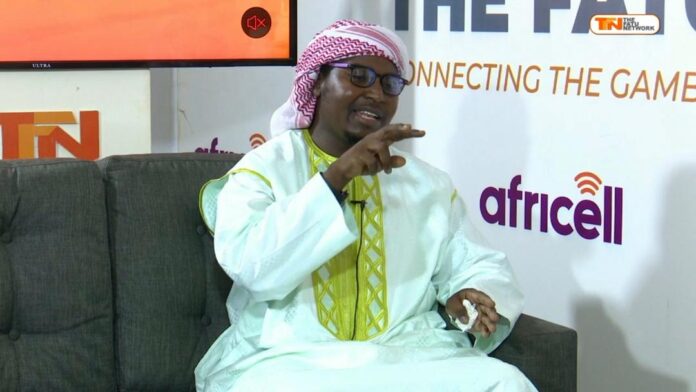By: Dawda Baldeh
Abu Muqbil Bah, a Hadith specialist and Islamic scholar, has criticised Imam Musa Jallow for venturing into politics, claiming that to survive in that space, the imam “must go against Shariah.” Speaking exclusively to The Fatu Network, Bah argued that Imam Jallow, who recently announced his political ambitions, was using his khutbah (sermon) to push a political agenda.
Imam Musa Jallow, who serves at the Tallinding Islamic Institute and recently launched the Reform and Development Party, has declared his intention to contest the 2026 presidential election. His entry into politics has sparked debate, particularly among fellow Islamic scholars.
“You can’t come to politics in the name of Islam — it’s unacceptable,” Bah said. “If any of you want to contest elections, make it clear that you are not representing Islam.”
Reacting to rumours that prominent scholars like Imam Fatty have a keen interest in politics, Bah warned that having religious leaders enter the political arena could lead to chaos if they fail. “When they are rejected, they will see their rejection as a fight against Islam — and it’s not. So, it’s not wise for imams to join politics because they will end up being corrupted. Secondly, The Gambia is not an Islamic state, which means if they are elected, they will be using a legal system that is not connected to Shariah,” he explained.
He cited examples in Egypt and Algeria where political parties formed under the pretext of Islam led to violence after losing elections. Bah argued that if scholars wish to enter politics, they should be transparent about their intentions. “Let the scholars (imams) tell people how they plan to govern the country if elected. Yes, they have the right as citizens to seek political power, but they should be careful not to do things that go against Islam,” he warned.
Bah went further to say that even if religious leaders are elected, they might end up acting against Islamic rulings. “Our constitution is inherited from the West. It’s based on democracy, and Islam doesn’t recognise democracy — simply because, in a democracy, we say the majority carries the vote. In Islam, it is the truth that matters, not what the majority say or want,” he explained. For him, such laws would make it difficult for Islamic scholars to lead the country without compromising Shariah.
“Imagine a whole imam telling his followers that during his campaign, music will play and people will be free to dance. In Islam, music is prohibited. So how can an imam allow that?” he questioned.
The controversial Hadith specialist concluded by urging religious leaders to avoid venturing into areas that could corrupt their minds.




